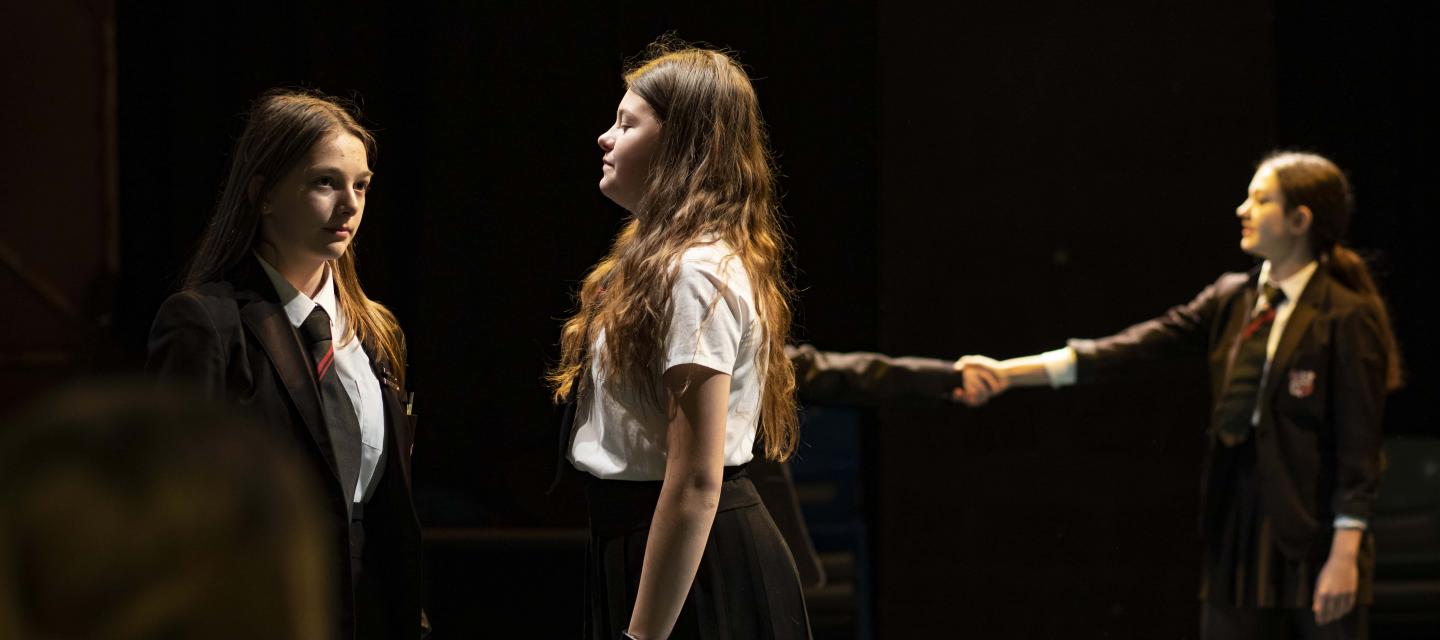What makes the Drama Dept special?
Creativity Achievement Self-development
Creativity: It is every child’s right to be given an opportunity to express themselves creatively. Creative outlets can help unlock some of the major problems that children are facing at school such as low self-esteem, lack of confidence and confusion over identity. By helping to develop a sense of worth in children through the arts, creative activities not only stimulate learning but also promote a strong awareness of self and citizenship.
Achievement: We offer them the opportunity to learn unique skills, giving them the chance to aspire to greater things. Part of personal growth is the recognition one gets for working hard, pushing back boundaries and overcoming new challenges. This gives the achiever a sense of well-being and contentment that drives them to want to do better and work even harder!
Self-development: Developing dreams and making the best of ourselves in a world that is fraught with uncertainty. A child or young person may never be aware of what inspires them unless they are given the chance to explore for themselves and identify the fact that they too can be inspired.
BE BRAVE BE CO-OPERATIVE BE CREATIVE
DEVELOP SELF-DISCIPLINE
In year 7 emphasis is put on developing a ‘kit bag’ of skills that can be used across the curriculum. These include; developing self-confidence, improving listening and speaking skills and exercising team skills. The main objective in year 7 is to be able to stand in front of a group of people and communicate effectively without worry and nervousness.
In year 8 the emphasis moves up in to developing specific drama skills, still building on knowledge from year 7, students are introduced to drama techniques and conventions to help create more sophisticated performances.
There is also a transition in to GCSE which includes; memorising scripts, developing knowledge of abstract drama concepts and exploring character motivation.
Drama GCSE
What will you do?
This course is mostly practical, focusing on Devising original pieces of improvisation and Script acting, but includes a written exam and a written logbook to support Component 2.
GCSE Drama is divided into three components:
Component 1- Understanding Drama
This component consists of a written exam, containing three sections to assess pupils’ Drama knowledge.
• Section A: multiple choice questions testing knowledge on Theatre staging, Roles within the Theatre and Stage positioning. (4 marks)
• Section B: four questions about a given extract from the set play chosen- The Crucible by Arthur Miller, testing the knowledge about Set, Costume or Lighting design and Acting. (44 marks)
• Section C: one question (from a choice) on the work of theatre makers, testing the ability to Describe, Analyse and Evaluate the effectiveness of a Theatre Performance(32 marks)
Component 2- Devising Drama
This component involves research, devising, rehearsal and performance of an original piece of theatre focusing on the work of Frantic Assembly and Mark Wheeller.
Component 3- Text in Practise
This component involves exploring, learning, rehearsing and performing a published script, two pieces are performed and recorded the groupings can range from 1 to 7.
How will it be assessed?
Component 1
• Written exam: 1 hour and 45 minutes
• Open book
• 80 marks
• 40% of GCSE
Component 2- Devising Drama (has two parts)
• Written Devising log divided in to three sections • Devised performance (20 marks)
1. Responding to stimulus
2. Development and Collaboration
3. Analysis and Evaluation
(60 marks) 2500 word maximum
• 80 marks in total
• 40% of GCSE
This component is marked by teachers and moderated by AQA.
Component 3- Text in Practise
• Performance of Extract 1 (20 marks) and Extract 2 (20 marks)
• 40 marks in total
• 20% of GCSE
This component is marked by an assigned AQAexaminer, either in person or via recorded means.
